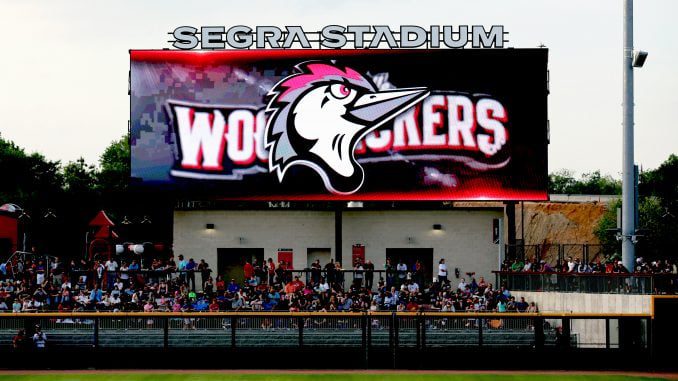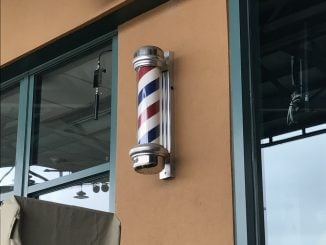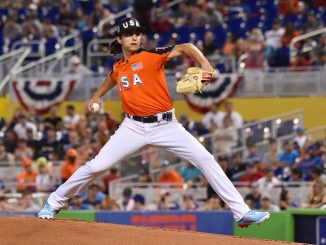
NEW YORK — Baseball’s minor leagues canceled their seasons Tuesday because of the coronavirus pandemic, and the head of their governing body said more than half of the 160 teams were in danger of failing without government assistance or private equity injections.
The National Association of Professional Baseball Leagues, the minor league governing body, made the long-expected announcement.
“We are a fans-in-the-stands business. We don’t have national TV revenues,” National Association president Pat O’Conner said during a digital news conference. “There was a conversation at one point: Well, can we play without fans? And that was one of the shortest conversations in the last six months. It just doesn’t make any sense.”
Eleven teams in North Carolina are impacted: Triple-A teams the Charlotte Knights and Durham Bulls; Class A teams the Asheville Tourists, Carolina Mudcats, Down East Wood Ducks, Fayetteville Woodpeckers, Greensboro Grasshoppers, Hickory Crawdads, Kannapolis Cannon Ballers and Winston-Salem Dash; and Rookie Advanced team the Burlington Royals
O’Conner estimated 85-90% of revenue was related to ticket money, concessions, parking and ballpark advertising. The minors drew 41.5 million fans last year for 176 teams in 15 leagues, averaging 4,044 fans per game.
MLB teams are planning for a 60-game regular season and most of their revenue will derive from broadcast money.
“I had a conversation with the commissioner, and we weren’t unable to find a path that allowed us to play games,” O’Conner said. “It wasn’t an acrimonious decision on our part.”
O’Conner said many minor league teams had received money through the federal Paycheck Protection Program Flexibility Act.
“That was a Band-Aid on a hemorrhaging industry,” he said. “Many of our clubs have gone through one, two, maybe three rounds of furloughs. In our office here, we’ve had varying levels of pay cuts between senior management, staff, and we’ve furloughed some individuals, as well, and are just about to enter in a second round of furloughs.”
He hopes for passage of H.R. 7023, which would provide $1 billion in 15-year federal loans from the Federal Reserve to businesses that had 2019 revenue of $35 million or less and “have contractual obligations for making lease, rent, or bond payments for publicly owned sports facilities, museums, and community theaters.”
In addition, the Professional Baseball Agreement between the majors and minors expires Sept. 30, and MLB has proposed reducing the minimum affiliates from 160 to 120.
“There’s no question that what the pandemic has done is made us somewhat weaker economically,” O’Conner said. “I don’t think it’s challenged our resolve. I don’t think it’s impacted our desire to stick together and get a good deal.”
There have not been substantive talks for about six weeks.
“There are very many teams that are not liquid, not solvent, not able to proceed under normal circumstances, and these are anything but normal circumstances given the PBA and the uncertainty of the future for some of these ballclubs,” O’Conner said. “So I think the coronavirus has really cut into many clubs’ ability to make it. And I think that we’re looking at without some government intervention, without doing something to take on equity partners, you might be looking at half of the 160 who are going to have serious problems.”
MLB already has told clubs to retain expanded 60-player pools, of which 30 players can be active during the first two weeks of the season starting in late July.
Conner said the financial impact of the pathogen might extend until 2023.
“As serious as the threat from Major League Baseball was,” O’Conner said, “this threat from the coronavirus, it transcends any list that anybody wants to make with respect to the possibility of teams not being around in the future.”
Teams in North Carolina are already looking forward to 2021.
“You have our commitment to bring you the most epic season in Bulls history in 2021,” Mike Birling, Durham Bulls vice president for baseball operations, said in a tweet on the team’s Twitter account.
The Burlington Royals, one of the teams that could be folded in MiLB’s new agreement with MLB assured fans that baseball will be back in Alamance County.
“The bright lights at Burlington Athletic Stadium will shine again soon, during even brighter days that await us in the future,” said part of the team’s statement on Twitter.



